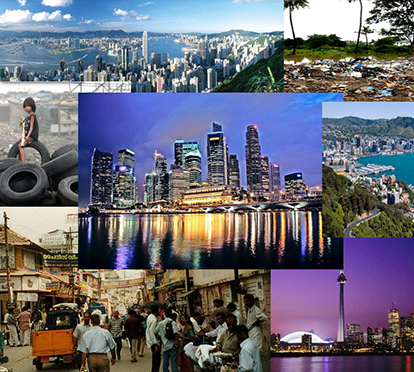In recent decades, the democratic system of governance has been touted as the epitome of political evolution, promising freedom, equality, and prosperity to nations across the globe. However, for developing countries, blindly adopting democracy may not always be the most prudent choice. While democracy undoubtedly has its merits, its implementation in the context of developing nations can often prove to be more detrimental than beneficial. Here are several compelling reasons why developing countries should reconsider embracing democracy as their primary mode of governance:

Cultural and Historical Context: Many developing countries have unique cultural and historical backgrounds that may not align seamlessly with the principles of democracy. The Western model of democracy, which emphasizes individualism, may clash with traditional values and societal structures prevalent in these nations. Attempting to transplant a foreign system without considering local context can lead to social unrest and instability.
Institutional Capacity: Democracy thrives in societies with robust institutions, including an independent judiciary, a free press, and a well-functioning bureaucracy. However, many developing countries lack the institutional capacity necessary to sustain a functioning democracy. Weak rule of law, corruption, and bureaucratic inefficiencies can undermine democratic processes, leading to governance failures and disillusionment among citizens.

Economic Development: Developing countries often face significant economic challenges, including poverty, unemployment, and inadequate infrastructure. In such contexts, the pursuit of economic development may require swift and decisive decision-making, which democratic systems, characterized by bureaucracy and consensus-building, may impede. Authoritarian regimes, while often criticized for their lack of political freedoms, have historically been successful in driving rapid economic growth and development.

Political Stability: Democracy does not guarantee political stability, especially in countries with deep-seated ethnic, religious, or tribal divisions. Competitive elections can exacerbate social tensions and foster political polarization, leading to violence and conflict. In contrast, autocratic regimes may offer stability by centralizing power and suppressing dissent, albeit at the cost of civil liberties.
External Interference: The promotion of democracy by Western powers is often accompanied by external interference in the domestic affairs of developing countries. This interference, whether through diplomatic pressure, economic sanctions, or covert operations, can undermine national sovereignty and fuel anti-democratic sentiments. Developing countries should have the autonomy to choose their own path of governance without external coercion.
Alternative Models: The notion that democracy is the only viable form of governance is increasingly being challenged by alternative models, such as meritocracy and technocracy. These systems prioritize expertise and competence over popular mandate, potentially offering more effective and efficient governance solutions, particularly in complex and rapidly changing environments.
In conclusion, while democracy remains a cherished ideal, its suitability for developing countries should be critically examined. Blindly embracing democracy without considering local realities and challenges can lead to unintended consequences, including political instability, economic stagnation, and social unrest. Developing countries should have the autonomy to explore alternative governance models that best suit their unique circumstances and aspirations for progress. By doing so, they can chart a path towards sustainable development and prosperity on their own terms.



